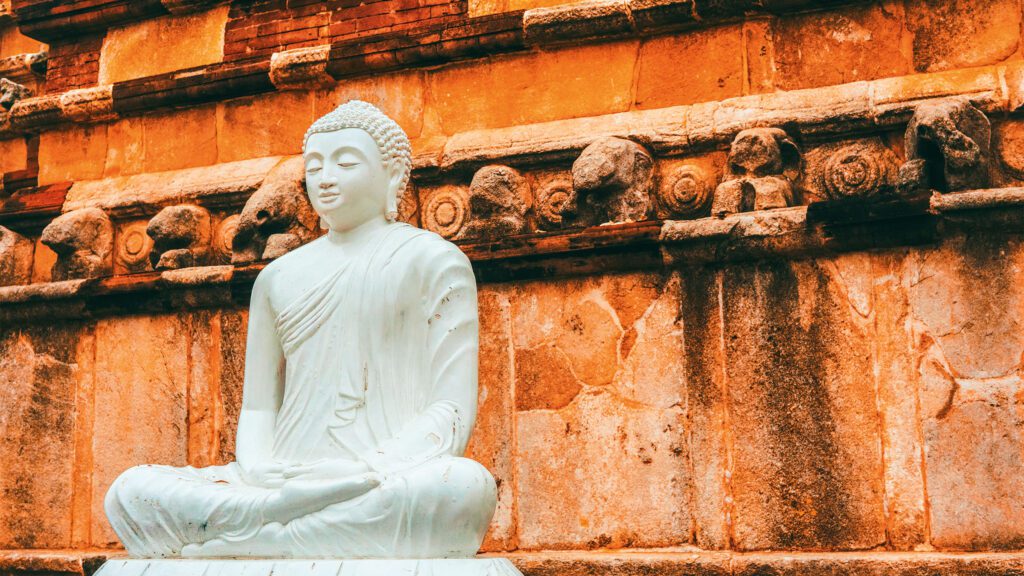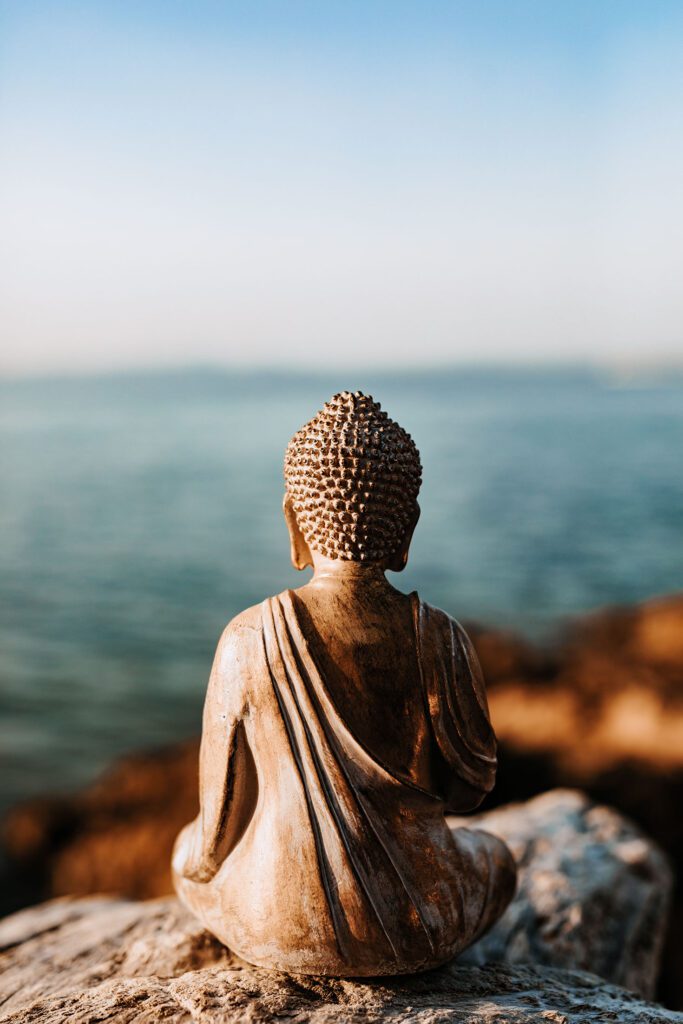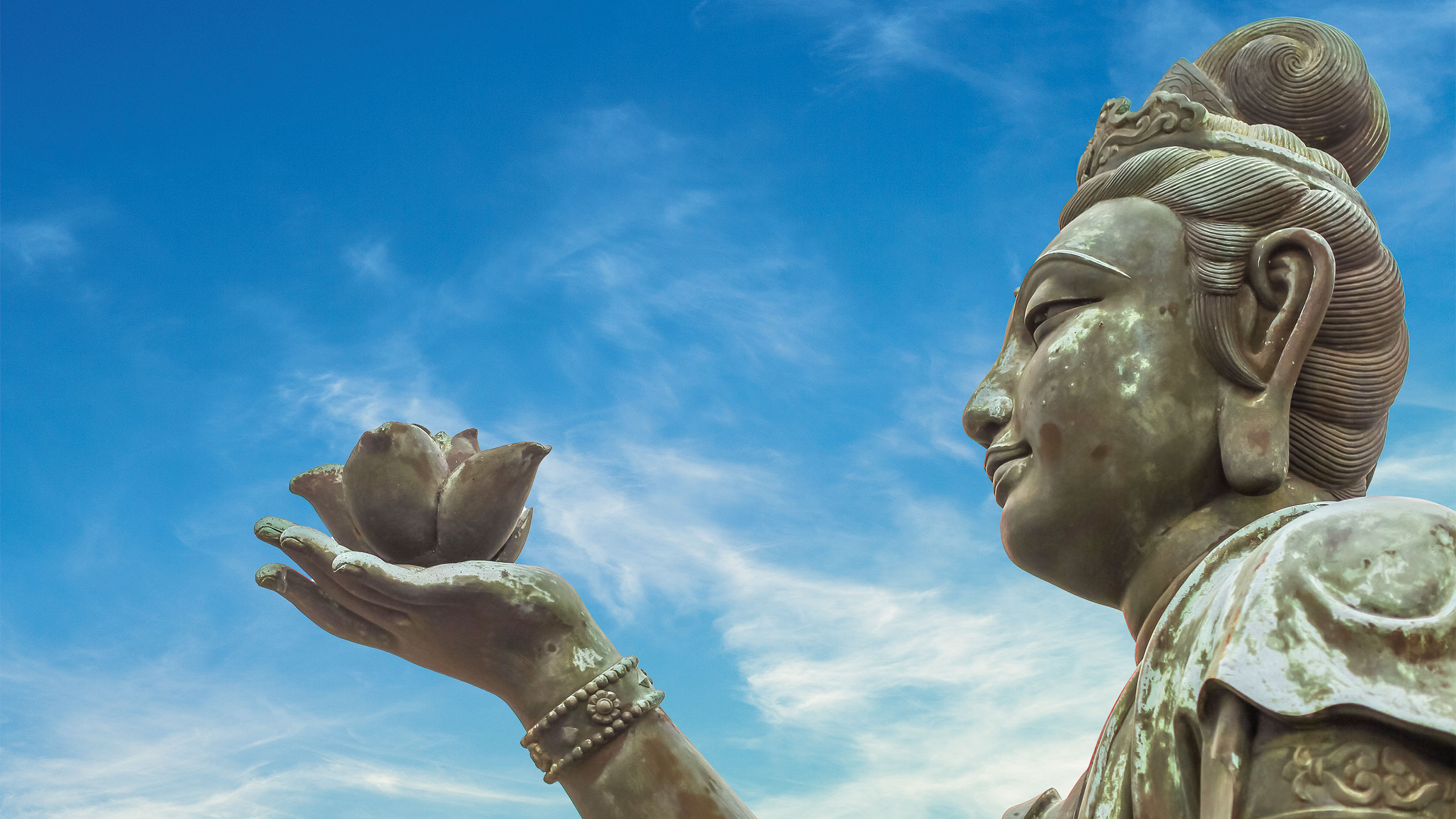My own journey with anxiety began in fourth grade when we were expected to begin making outlines. I was a dreamy, unfocused girl with undiagnosed ADHD, part of a lineage of anxious women in my Jewish family holding generations of historical trauma. With ADHD I had trouble sequencing things, organizing work, keeping track of time, possessions, calendars, and deadlines. This personal struggle and my anxiety about it grew during my school and college years. After I started intensive meditation practice, I could see through my personal situation to find great refuge. Meditation taught me to sit with, tolerate, and then befriend my anxiety. I learned that anxiety is workable and impermanent. Today, I can even say I’m grateful for the anxiety that pushed me to practice so hard.
“As long as we are human, anxiety will arise.”
In fact, we might all offer a bow of thanks to both fear and anxiety for our survival; they function as our bodyguards. We can learn to recognize the difference between acute fear, which is a helpful response to present danger, and chronic fear, which is anxious vigilance in response to real or imagined future dangers. We now understand that adverse childhood experiences and trauma can change the wiring of our stress system so that we are more prone to anxious alarm and vigilance as adults. Fortunately, modern science has shown that meditation and psychotherapy can help turn the dial down on anxiety.
We live in a time of great cultural fear about the present and anxiety about the future. Climate change and environmental injustice, war and divisiveness, poverty and global inequality, racism, homophobia, and sexism—it’s a lot to hold in our hearts.

Personally, we worry about our security, our family, our work, our body. Repeated fears can run through our minds: Will I find someone to love who will love me? Will I be able to find meaningful work? Will I have enough money? We worry socially. Will people like me? Will they respect me? Where will I fit in? Worrying about falling short, we criticize ourselves: Why can’t I handle this better? What’s wrong with me? At other times, it seems easier to deflect our anxiety by judging others in a moment of self-righteousness.
Anxiety can manifest in many ways: as restlessness, irritation, a feeling of being overwhelmed, sleep problems. It can be amplified by uncertainty and the unknown, but most of all, anxiety is a symptom of being disconnected from your truest self. The gap of disconnection between who we think we are supposed to be and who we truly are creates anxiety that exiles us from our heart of hearts. And sitting with anxiety is like sitting with poison ivy, so the understandable reaction is to turn away from the intense discomfort it brings. Unfortunately, this only makes things worse. When we don’t face the anxiety, we react in ways that temporarily relieve the feeling but, in the long run, don’t work. Both Western psychotherapy and dharma practice encourage us to turn toward the feeling of anxiety with a tender heart. Then we can see how it arises in both personal and universal ways.
Our essential nature is free and compassionate. When we practice observing anxiety with loving awareness, we may be surprised to see that it arises not only from mistaking who we truly are, but also from a deep caring. Beneath the maladaptive defenses against the feeling of anxiety—like substance use, distraction and obsession, and the impulse to judge ourselves or want to fix others—there is genuine concern. The truth is we care. Take a moment to let yourself feel this. Underneath all the worry and shame and anger and blame is the vulnerability of great caring. Tune into it, feel it as an expression of love.
The deepest root of anxiety is universal, and it’s described in the Buddha’s teachings as the first noble truth. This truth says that life inevitably includes suffering. Our life is insecure. We experience aging, sickness, and death, gain and loss, praise and blame, pleasure and pain. Life follows the truth of impermanence—although we wish we could last, we will not. No matter how we feel about it, we can’t control our vulnerability, mortality, and wishes for things to be different. When we cling to stability where there is none, this is a recipe for anxiety.

As long as we are human, anxiety will arise. With curiosity and presence, it becomes clear that the thoughts and emotions generated by anxiety are not our true identity. We can shift to become more of the Buddha that we truly are. We can breathe and kindly acknowledge anxiety, with its stories and uncomfortable sensations. We can ground ourselves, let our feet and body settle on the earth. We can take a walk among the trees and feel their steadiness and benevolence, or carefully place all our worries in the lap of the Buddha’s wisdom, in Guanyin’s compassion, or in the healing energy of Mother Earth. Consider lighting a candle and making a simple daily ritual of bringing mindful, loving presence to your body, heart, and mind. Remember that you don’t have to fight against anxiety; it is part of human incarnation. Sometimes it is hard to be human! Conflict and concerns are a part of life. But so are love and connection.
With wise understanding, timeless freedom can be found right where we are. We can shift from being “the one who is lost or afraid” to become “the one who sees it all with compassion.” We can hold it all with a trusting heart. Of course, we can work to tend and repair the world. But we can do so with a heart of caring and peace. The present moment is where both anxiety and freedom live. With practice, they can peacefully coexist.
The world of impermanence, joy and sorrow, birth and death, can all be held in a heart of freedom. The third Zen ancestor counselled us to “live without anxiety about the imperfections of the world.” In other words, things inevitably fall out of balance, and yet this can be against a backdrop of vast peace. As Suzuki Roshi said, “When we realize the everlasting truth of ‘everything changes’ and find our composure in it, we find ourselves in nirvana.”

